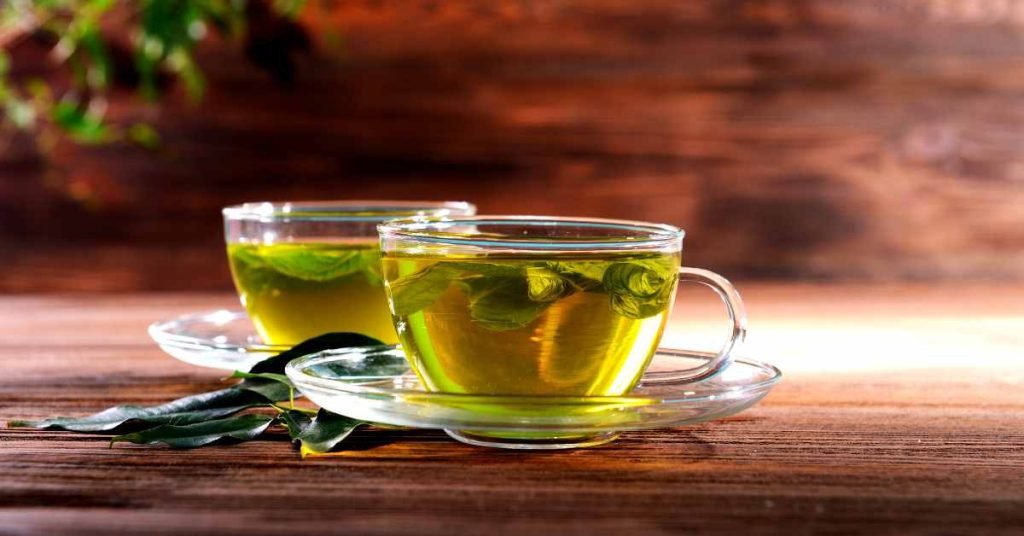Catechins are a type of flavonoid antioxidant found in various foods and beverages, such as tea, cocoa, and fruits.
They are a subgroup of flavonoids, which are natural compounds that are widely distributed in plant foods and are known for their antioxidant and anti-inflammatory properties.
Catechins are particularly abundant in tea, especially green tea, and are thought to be responsible for many of the health benefits associated with tea consumption.
Some of the potential health benefits of catechins include improved cardiovascular health, lower risk of certain cancers, and improved metabolic health. Catechins may also have antimicrobial and neuroprotective effects.
It’s important to note that while catechins have many potential health benefits, they should be consumed as part of a balanced diet and in moderation. Excessive intake of catechins, particularly from supplements, may have negative health effects.
Which Tea Contains Most Catechins?

Green tea contains the highest levels of catechins compared to other types of tea.
Specifically, it contains a catechin called epigallocatechin gallate (EGCG), which is believed to be responsible for many of the health benefits associated with green tea consumption.
The levels of catechins in green tea can vary depending on factors such as the quality of the tea leaves and the brewing method, but in general, green tea is considered to be a rich source of these beneficial compounds.
How Do Green Tea Catechins Affect Human Health?
Green tea catechins, particularly epigallocatechin gallate (EGCG), have been studied extensively for their potential health benefits in humans. Some of the ways in which green tea catechins may affect human health include:
Antioxidant properties: Green tea catechins are potent antioxidants, which means they can help protect cells from damage caused by free radicals. This may contribute to a lower risk of chronic diseases such as cancer, cardiovascular disease, and neurodegenerative disorders.
Cardiovascular health: Green tea catechins may help improve cardiovascular health by reducing levels of LDL (“bad”) cholesterol and triglycerides while increasing levels of HDL (“good”) cholesterol. They may also help improve blood vessel function and reduce inflammation, which can lower the risk of heart disease.

Weight management: Green tea catechins have been shown to help with weight management by increasing metabolism and fat oxidation, as well as reducing appetite and energy intake.
Brain function: Green tea catechins may have neuroprotective effects and help improve brain function. Studies have found that they may improve cognitive function, mood, and attention.
Cancer prevention: Some studies suggest that green tea catechins may have anticancer properties and may help reduce the risk of certain types of cancer, such as breast, prostate, and colorectal cancer.
It’s worth noting that more research is needed to fully understand the health benefits of green tea catechins and their optimal dose and duration of consumption.
Additionally, consuming excessive amounts of green tea or taking supplements may have negative health effects, so it’s important to consume green tea catechins in moderation as part of a healthy, balanced diet.
Can Green Tea Catechins Be Toxic?
Green tea catechins are generally safe when consumed in moderation as part of a healthy, balanced diet. However, excessive consumption of green tea catechins or the use of green tea catechin supplements may lead to toxicity.
The toxic effects of green tea catechins are generally associated with the use of supplements that contain high doses of these compounds, rather than the consumption of green tea itself.

Excessive intake of green tea catechin supplements has been associated with liver toxicity, particularly in individuals with pre-existing liver problems or those taking certain medications.
Additionally, some studies have reported adverse effects such as nausea, vomiting, diarrhea, and abdominal pain associated with high-dose green tea catechin supplements.
Therefore, it is important to consume green tea catechins in moderation and avoid excessive intake of supplements.
Remember that green tea may interact with certain medications, such as blood thinners and certain antidepressants, so it’s important to talk to a healthcare provider before consuming green tea or green tea supplements if you are taking medication.
MEDICAL DISCLAIMER
Itsnevernotteatime.com cannot and does not contain medical/health advice. The medical/health information is provided for general and educational purposes only and is not a substitute for professional advice.




